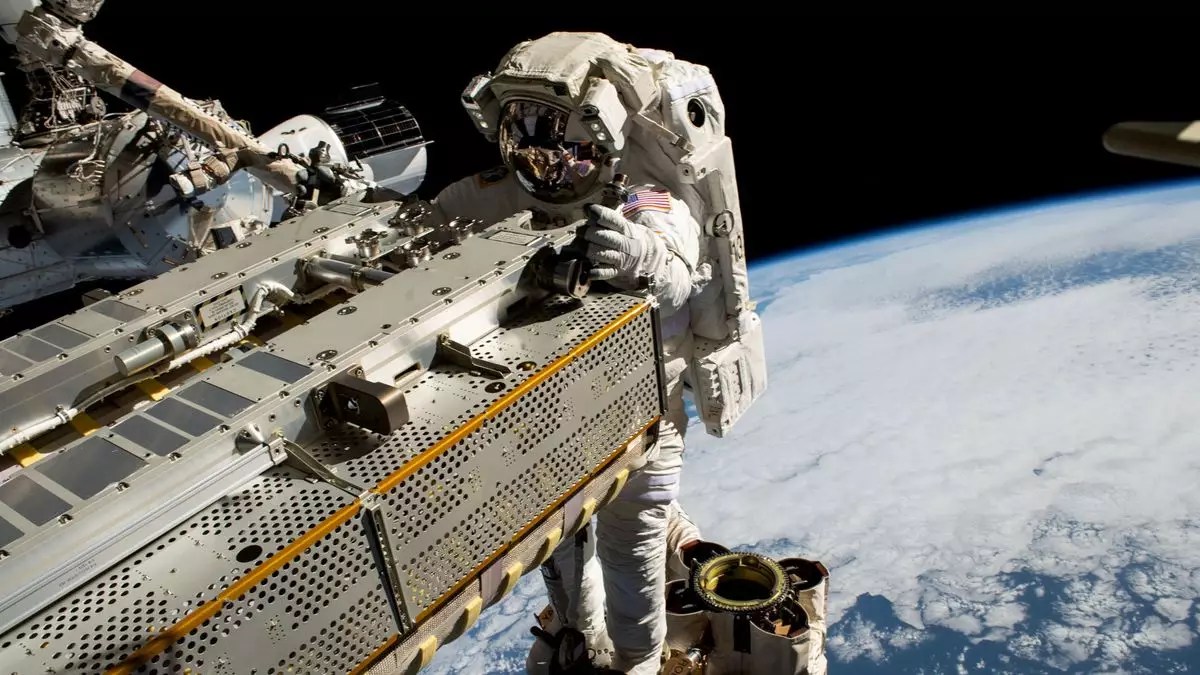The tech world has once again shown its ability to turn science fiction into reality with the development of a groundbreaking system by a research team in the US. This innovative system, cleverly disguised as a pair of snug-fitting pants, has the ability to collect urine and transform it into potable water. This new technology is aimed at replacing the bulky and uncomfortable diapers, known as Maximum Absorbency Garments (MAGs), currently worn by astronauts during spacewalks. Not only does this new system solve a practical issue for astronauts, but it also brings to mind images of the iconic Dune universe, adding a touch of futuristic flair to the space industry.
The Problem with Spacewalks
Spacewalks, or extravehicular activities (EVAs), present numerous challenges for astronauts. In addition to the dangers of micrometeorites and extreme temperatures, astronauts are faced with the difficulty of working non-stop for extended periods of time, often eight hours or more. Due to the time-consuming process of getting in and out of a spacesuit, toilet breaks are not feasible during EVAs. As a result, astronauts have traditionally relied on adult-sized diapers to collect waste generated during their missions. However, these diapers are bulky and uncomfortable, leading to the development of a more efficient and user-friendly solution.
The research team at Weill Cornell Medicine and Cornell University has come up with a revolutionary system that eliminates the need for traditional diapers during spacewalks. The system consists of a pair of form-fitting pants equipped with a vacuum catheter for urine collection. The collected urine is then processed through a battery-powered forward-and-reverse osmosis system, transforming it into clean, drinkable water. This innovative design not only improves the comfort and convenience for astronauts but also provides a more sustainable solution for managing waste in space.
While the new system offers significant advantages over traditional diapers, there are some challenges that need to be addressed. The energy requirements for driving the filtering process mean that spacesuits will need to be equipped with larger batteries, adding extra weight to the already cumbersome suit. The current design weighs in at 8 kg (17.6 lbs), which could potentially pose additional stress on astronauts during surface missions, such as those on the Moon. However, the research team believes that the benefits of improved performance and access to clean water outweigh the drawbacks of increased mass and battery requirements.
Future Applications
Beyond the space industry, the Dune-like technology developed by the research team has the potential for a wide range of applications. The system’s hygienic and efficient waste management capabilities make it suitable for medical use, offering a more comfortable and discreet alternative to traditional adult diapers. Additionally, there may be interest from other sectors, such as gaming, where individuals are seeking ways to minimize interruptions and maximize productivity during extended periods of activity.
The development of this innovative system marks a significant step forward in space toiletry technology. By merging science fiction with practical solutions, the research team has opened up new possibilities for waste management in space and beyond. As technology continues to advance, the potential for improved comfort, sustainability, and efficiency in a variety of industries is vast. The future of toiletry technology is looking brighter, more efficient, and much more comfortable.


Leave a Reply